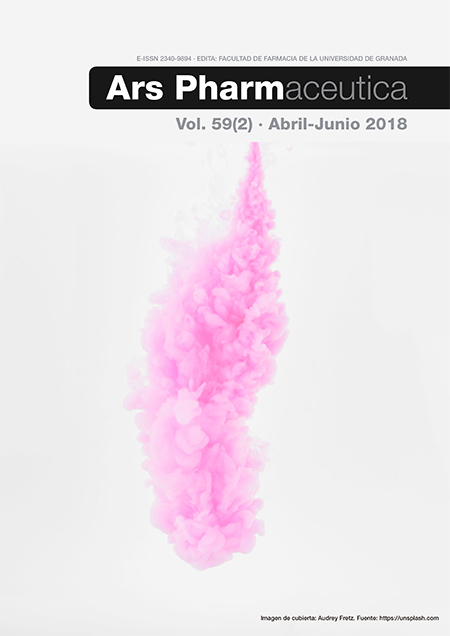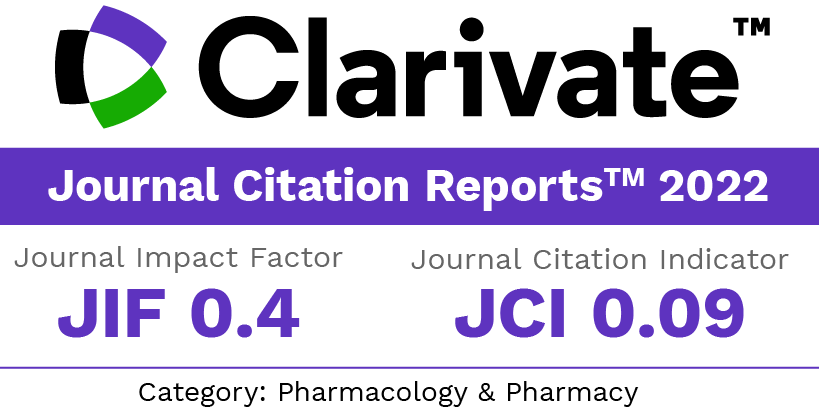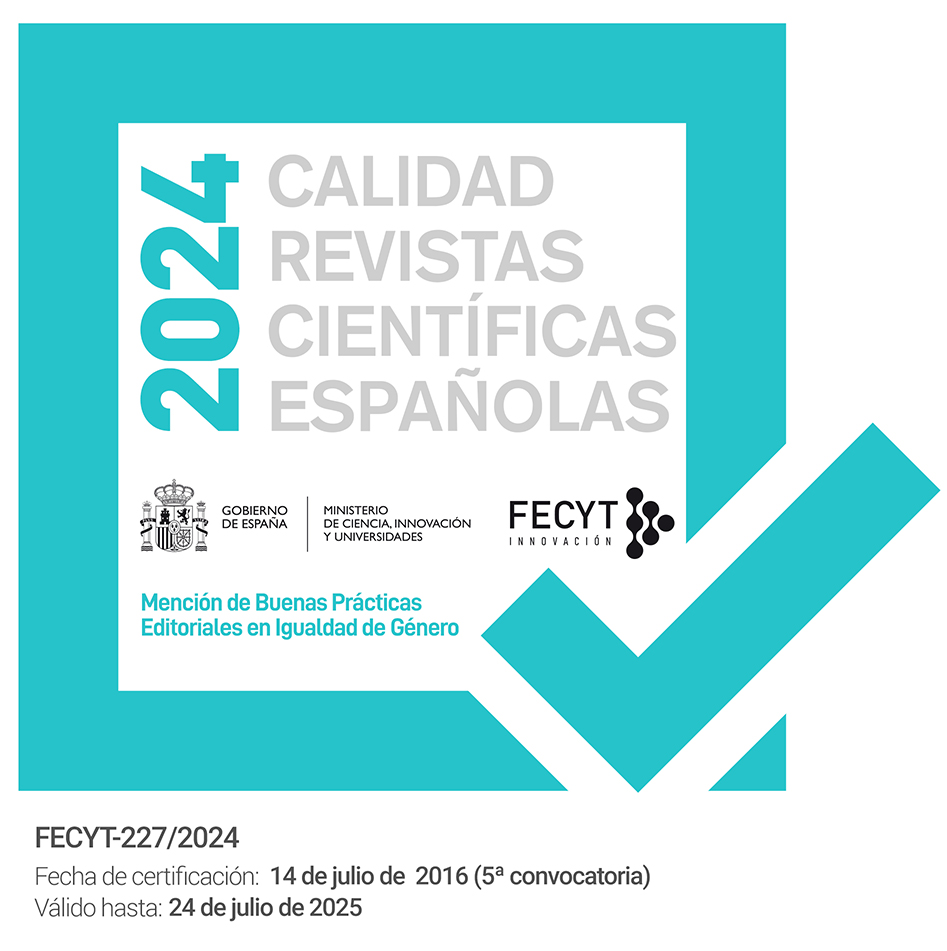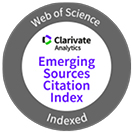Knowledge Integration Activities in the Pharmacy Degree. Application in the Toxicology Subject
Keywords:
integration, knowledge, subjects, pharmaceutical sciencesAbstract
Aim. During the last years the professors of the Department of Pharmacology, Toxicology and Therapeutic Chemistry have initiated a set of teaching actions with the aim of promoting the improvement of knowledge integration capacities corresponding to the subjects taught to students of Pharmacy degree; as well as a multidisciplinary and retroactive continuous evaluation model allowing to objectify its achievement.
Methods. In order to develop these integration actions and their subsequent evaluation, several subjects of the Department have been coordinated and the knowledge necessary for understanding the contents of following courses have been analyzed. Within the subject of Toxicology, we have developed a set of actions based on the design, application and, in some cases, evaluation of a variety of activities.
Results. In order to assess the success of these actions, we have compared the results obtained in a test of integration questions at the beginning of the course with the results of another test at the end of the course. The results obtained in the four items compared show a significant improvement in one question, a maintenance of results in another, and a non-significant relative improvement in the other two.
Conclusions. We can conclude that the actions developed have partially achieved the proposed objectives. We consider that this tool can be very useful to promote greater coordination among teachers in the design of joint and transversal teaching materials and in integrated evaluation models.
Downloads
References
Rodamilans M, Cambras T, Gómez-Catalan J, et al.. La coordinación entre profesores de fisiología y toxicología: un caso práctico en la Facultad de Farmacia de la Universidad de Barcelona. Ars Pharm. 2010; 51: 45-52.
URL: http://farmacia.ugr.es/ars/ars_web/articulo.php?554
Cambras T, Rodamilans M (coords). Un caso clínico sobre el consumo de riesgo de alcohol como herramienta de integración de conocimientos en el Grado de Farmacia. Cuadernos de docencia universitaria 31. 1ª ed. Barcelona: ICE y Ediciones OCTAEDRO, S.L.; 2017. 74p.
URL: https://www.octaedro.com/pdf/CDU-31-CAST.pdf
Metón I, Giménez R, Cambras T, Pubill D, Rodamilans M. Undergraduate students awareness of tobacco smoking as a control for the implementation of a transversal clinical case in the degree of pharmacy. ICERI2016 Proceedings. 2016; 8049-8055
DOI: 10.21125/iceri.2016
Alegret M, Borras M, Escubedo E, et al.. La evaluación continuada y la mejora en el rendimiento académico: el caso de la farmacología y toxicología en I+D+i del Grado de Farmacia. Revista de la Fundación Educación Médica. 2015; 18 Supl 1:516.
URL: http://diposit.ub.edu/dspace/bitstream/2445/66049/1/649877.pdf
Rodamilans M, Gómez-Catalán J, Piqué E, et al.. Desarrollo de casos clínicos transversales: experiencia dinamizadora de la Unidad Docente de Toxicología de la Universidad de Barcelona. Revista de Toxicología. 2012; 29:141-146.
URL: http://rev.aetox.es/wp/wp-content/uploads/hemeroteca/vol29-2/626-1840-1-SM.pdf
Roegiers X, De Ketele JM. Pedagogía de la integración. Competencias e integración de los conocimientos en la enseñanza. San José: Coordinación Educativa y Cultural Centroamericana y AECI; 2007. 328 p.
Vicedo A. La integración de conocimientos en la educación médica. Educación Médica Superior. 2009; 23(4): 226-237.
URL: http://scielo.sld.cu/pdf/ems/v23n4/ems08409.pdf
Beard R. Teaching and Learning in Higher Education. 3rd Ed. New York: Penguin Education; 1976. 251 p.
Rosell W. La enseñanza integrada en las Ciencias Médicas. Educación Médica Superior. 1998; 12(2):45-48.
URL: http://scielo.sld.cu/pdf/ems/v12n2/ems02298.pdf
Baños JE, Pérez J. Cómo fomentar las competencias transversales en los estudios de Ciencias de la Salud: una propuesta de actividades. Educación Médica. 2005; 8: 216-225.
URL: http://scielo.isciii.es/pdf/edu/v8n4/05.pdf
Barrows HS, Tamblyn RM. Problem-Based Learning. An Approach to Medical Education. New York: Springer Publishing Company; 1980. 206 p.
Vicedo A. Educación Médica Integrada. Una experiencia africana. Educación Médica Superior. 2008; 22(1): 0-0.
URL: http://scielo.sld.cu/pdf/ems/v22n1/ems02108.pdf
De Miguel M. Modalidades de enseñanza centradas en el desarrollo de competencias. Orientaciones para promover el cambio metodológico en el espacio europeo de educación superior. Oviedo: Ediciones de la Universidad de Oviedo; 2006. p. 89-92.
Terrón MJ, Blanco Y, Berenguer FJ, Learreta B. La coordinación del profesorado como necesidad en la construcción del EEES: una experiencia en investigación-acción. En: Martin MA, García-Teran JM,editores. Libro de Actas del 15º Congreso de Innovación Educativa en las Enseñanzas Técnicas (15º CUIEET). Valladolid: Escuela Universitaria Politécnica de Valladolid; 2007. p. 1197-1206.
URL: http://hdl.handle.net/11268/3921
Rodamilans M, Cambras T, Gimenez R, et al.. El trabajo colaborativo como herramienta de formación del profesorado. Valoración inicial del grupo de trabajo multidisciplinar CCT-FARMA. En: Albadalejo C, Prats M.M. (Coord) Actas del III Congreso Internacional “Nuevas Tendencias en la Formación Permanente del Profesorado”. Barcelona: Institut de Ciències de l’Educació (ICE) de la Universitat de Barcelona; 2012. p. 415-425.
URL: http://www.ub.edu/congresice/actes/4_rev.pdf
Gibbs G, Simpson C. Condiciones para una evaluación continuada favorecedora del aprendizaje. 1ª ed. Barcelona: Octaedro; 2009. 50 p.
Santos MA. La evaluación de los alumnos, un proceso de aprendizaje para el profesorado. En: Santos MA. Evaluar es comprender. Buenos Aires: Magisterio del Rio de la Plata; 1998.
URL: http://www.investigacionenlaescuela.es/articulos/30/R30_1.pdf
Santos MA. Una flecha en la diana. La evaluación como aprendizaje. Andalucía educativa. 2002; 34: 7-9.
URL: http://multiblog.educacion.navarra.es/jmoreno1/files/2013/10/evaluaci%C3%B3n-de-la-escuela.pdf
Gómez-Catalán J, Barenys M, Teixidó E, et al.. La enseñanza de la Toxicología en Farmacia: los seminarios como herramienta para la evaluación continuada. REIRE 2010; 3: 37-52.
URL: http://diposit.ub.edu/dspace/bitstream/2445/24388/1/590018.pdf
Rodamilans M, Boix N, Cambras T, et al.. ¿Implementar un caso clínico transversal en el grado de Farmacia? ¿Modifica la capacidad de integración de los conocimientos? Revista de Toxicología. 2015; 32(1): 40.
URL: http://rev.aetox.es/wp/wp-content/uploads/hemeroteca/vol32-1/3215.pdf
Giménez R, Badia J, Baldomà L, et al.. Incorporación de un caso clínico transversal en el grado de Farmacia. Valoración de la experiencia docente en la asignatura de Bioquímica. Revista de la Fundación Educación Médica. 2013; 16 (Supl 1): S1-S68.
URL: http://scielo.isciii.es/pdf/fem/v16s1/11_comunicacion_ganadora.pdf
Downloads
Published
How to Cite
Issue
Section
License
The articles, which are published in this journal, are subject to the following terms in relation to the rights of patrimonial or exploitation:
- The authors will keep their copyright and guarantee to the journal the right of first publication of their work, which will be distributed with a Creative Commons BY-NC-SA 4.0 license that allows third parties to reuse the work whenever its author, quote the original source and do not make commercial use of it.
b. The authors may adopt other non-exclusive licensing agreements for the distribution of the published version of the work (e.g., deposit it in an institutional telematic file or publish it in a monographic volume) provided that the original source of its publication is indicated.
c. Authors are allowed and advised to disseminate their work through the Internet (e.g. in institutional repositories or on their website) before and during the submission process, which can produce interesting exchanges and increase citations of the published work. (See The effect of open access).



















